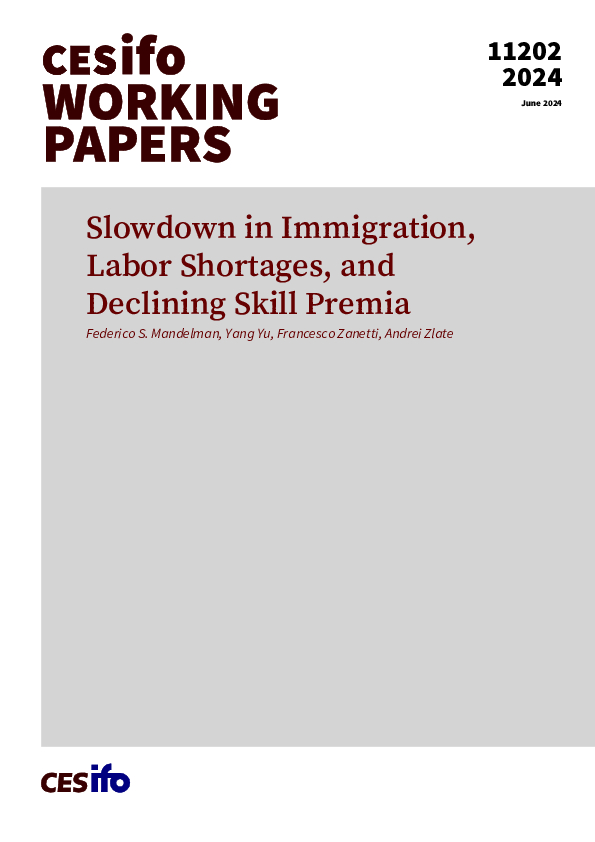Slowdown in Immigration, Labor Shortages, and Declining Skill Premia
CESifo, Munich, 2024
CESifo Working Paper No. 11202

We document a steady decline in low-skilled immigration that began with the onset of the Great Recession in 2007, which was associated with labor shortages in low-skilled service occupations and a decline in the skill premium. Falling returns to high-skilled jobs coincided with a decline in the educational attainment of native-born workers. We develop and estimate a stochastic growth model with endogenous immigration and training to account for these facts and study macroeconomic performance and welfare. Lower immigration leads to higher wages for low-skilled workers and higher consumer prices. Importantly, the decline in the skill premium discourages the training of native workers, persistently reducing aggregate productivity and welfare. Stimulus policies during the COVID-19 pandemic, amid a widespread shortage of low-skilled immigrant labor, exacerbated the rise in consumer prices and reduced welfare. We show that the 2021-2023 immigration surge helped to partially alleviate existing labor shortages and restore welfare.
Labour Markets
Fiscal Policy, Macroeconomics and Growth